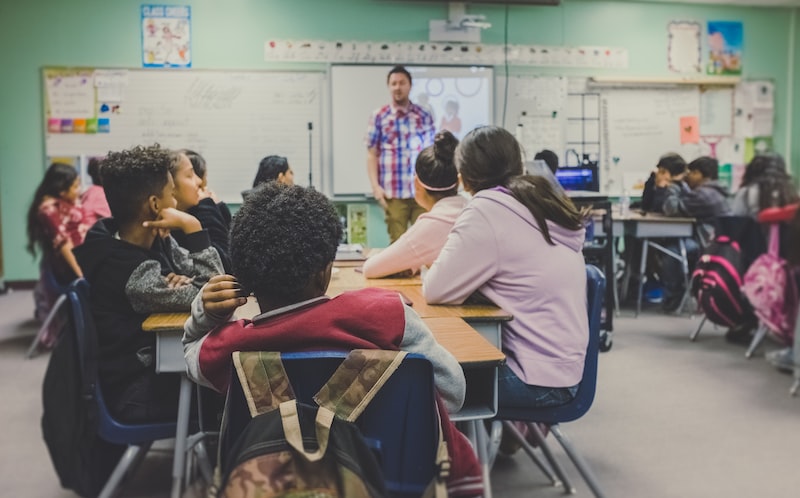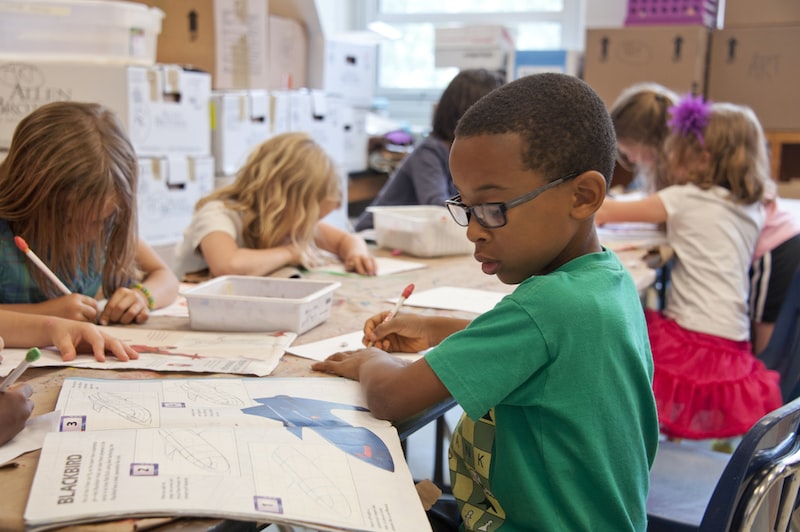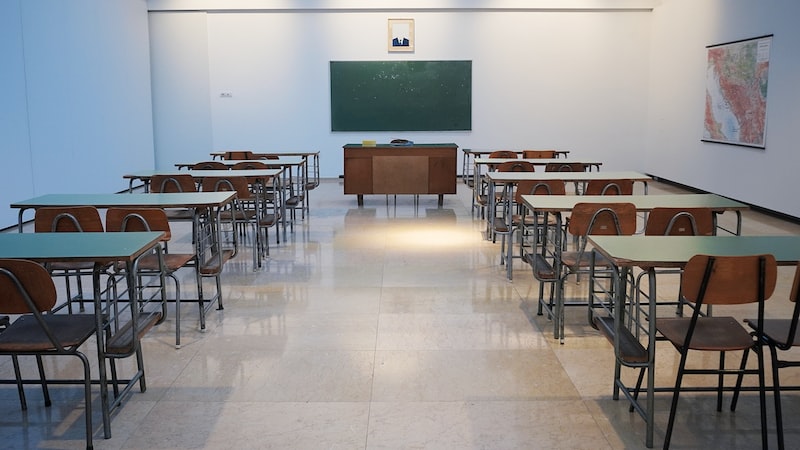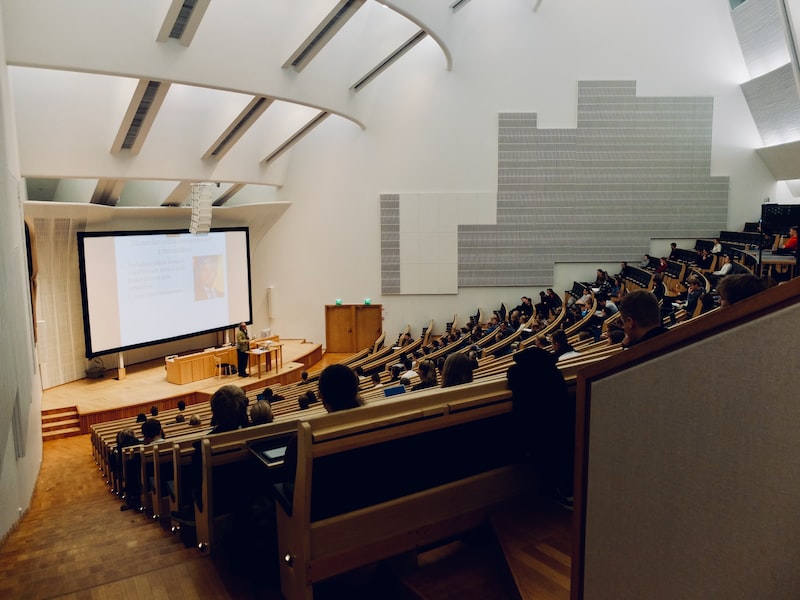Extracurricular activities in school life go far beyond just being a pastime or a way to kill time. They play a crucial role in shaping a student’s overall development, enhancing their skills, and instilling values that go beyond the classroom walls. These activities, ranging from sports to clubs, arts, and community service, offer a plethora of benefits that extend well into adulthood.
Engaging in extracurricular activities allows students to explore their interests and passions outside of academic studies. Whether it’s joining the school band, participating in a debate club, or playing soccer, these activities provide an avenue for self-expression and personal growth. By pursuing something they genuinely enjoy, students develop a sense of purpose and motivation, which can positively impact their academic performance as well.
Moreover, extracurricular activities foster essential life skills that are not always taught in the classroom. Teamwork, leadership, communication, time management, and problem-solving are just a few examples of the valuable skills students can acquire through participation. When working collaboratively towards a common goal, students learn to appreciate diverse perspectives, find creative solutions, and build strong relationships with their peers.
Participating in extracurricular activities also exposes students to new experiences and broadens their horizons. It encourages them to step out of their comfort zone, try new things, and discover hidden talents. For instance, a student who has never considered themselves artistic may find a passion for painting by joining an art club. These experiences help students develop a well-rounded personality and nurture their individuality.
Furthermore, extracurricular activities allow students to connect with their community and make a difference. Engaging in volunteer work or organizing social initiatives cultivates empathy, compassion, and a sense of social responsibility. Students learn the importance of giving back and become more aware of the world around them. These experiences teach them valuable lessons about humility, gratitude, and the power of collective action.
In conclusion, extracurricular activities are not mere additions to a student’s schedule; they are invaluable components of their educational journey. By participating in these activities, students develop crucial skills, explore their passions, and become well-rounded individuals. Schools must recognize the importance of extracurricular activities and provide ample opportunities for students to engage in diverse pursuits that contribute to their personal growth and success, both inside and outside the classroom.
Promoting Physical Fitness and Well-being
Are you tired of feeling sluggish and out of shape? Do you want to improve your physical fitness and overall well-being? Look no further! In this article, we will explore the various ways you can promote physical fitness and enhance your well-being. So, let’s dive in and discover the secrets to a healthier and happier you!

Exercise is key when it comes to promoting physical fitness and well-being. Regular physical activity has numerous benefits for both your body and mind. It helps strengthen your muscles, improve cardiovascular health, and boost your metabolism. Engaging in activities like jogging, swimming, or yoga can be not only fun but also an effective way to stay fit.
But exercise alone is not enough. A balanced diet is equally important. Fueling your body with nutritious foods provides the necessary vitamins, minerals, and energy to support your physical activities. Incorporate a variety of fruits, vegetables, lean proteins, whole grains, and healthy fats into your meals. Remember, it’s about nourishing your body from within.
In addition to exercise and nutrition, rest and recovery are vital components of promoting physical fitness and well-being. Your body needs time to recharge and repair itself. Make sure to get enough sleep each night, as sleep plays a crucial role in maintaining optimal health.
Furthermore, managing stress levels is essential for your overall well-being. Stress can have a negative impact on both your physical and mental health. Find healthy outlets to relieve stress, such as meditation, deep breathing exercises, or engaging in hobbies you enjoy. Taking care of your mental well-being is just as important as taking care of your physical health.
Remember, promoting physical fitness and well-being is a journey, not a destination. It requires consistency, dedication, and a positive mindset. Celebrate small victories along the way and embrace the changes you see in yourself. By incorporating exercise, proper nutrition, rest, and stress management into your lifestyle, you’ll be on your way to a healthier, happier you!
Now that you have the tools and knowledge, it’s time to take action. Start making small changes today and watch as they accumulate into significant improvements in your physical fitness and overall well-being. Are you ready to embark on this transformative journey? The choice is yours.
Developing Leadership Qualities
Leadership is not just a title; it’s a set of qualities that inspire and motivate others. Whether you aspire to be a leader or want to enhance your existing leadership skills, developing these qualities is crucial. In this article, we will explore the key attributes that contribute to effective leadership.
First and foremost, a great leader possesses excellent communication skills. Clear and concise communication ensures that ideas are conveyed effectively, fostering understanding and cooperation among team members. By actively listening and articulating thoughts with clarity, leaders build trust and encourage open dialogue within their teams.
Another vital quality of a leader is the ability to adapt and embrace change. In today’s fast-paced world, flexibility is paramount. Leaders should be open-minded, receptive to new ideas, and willing to adjust their strategies when necessary. Adapting to change not only helps navigate challenges but also inspires innovative thinking and growth.
A strong leader leads by example. They act as a role model, guiding their team towards success through their actions. By demonstrating integrity, accountability, and dedication, leaders inspire trust and loyalty in their followers. A leader’s behavior sets the tone for the entire team, so leading with integrity and authenticity is essential.
Leadership is also about empowering others. A good leader recognizes and nurtures the potential in their team members. They delegate responsibilities, allowing individuals to grow and develop their skills. Empowering others fosters a sense of ownership and responsibility, resulting in higher productivity and job satisfaction.
Furthermore, effective leaders possess emotional intelligence. They understand and manage their own emotions while empathizing with others. This allows them to navigate conflicts, build strong relationships, and motivate their team members. By being aware of their own emotions and those of others, leaders create a positive and supportive work environment.
In conclusion, developing leadership qualities is a continuous process. It requires honing skills such as effective communication, adaptability, leading by example, empowering others, and emotional intelligence. By focusing on these attributes, individuals can become inspiring leaders who drive their teams towards success. So, embrace the journey of developing leadership qualities and unlock your full potential as a leader.
Cultivating Creativity and Artistic Expression
Are you ready to unleash your inner artist and embark on a journey of creative self-expression? Cultivating creativity and artistic expression is not only a delightful endeavor but also a means of personal growth and fulfillment. In this article, we will explore the transformative power of embracing your creative side.
Creativity is like a vibrant garden waiting to be nurtured. Just as a gardener tends to the soil, plants, and flowers, cultivating creativity requires attention and care. It involves breaking free from routine, embracing curiosity, and allowing yourself to think outside the box. By giving yourself permission to explore new ideas, experiment with different mediums, and take risks, you open yourself up to a world of possibilities.
Artistic expression is the language of the soul. Whether it’s through painting, writing, dancing, or any other creative outlet, art allows us to communicate our deepest emotions and thoughts. It gives voice to our innermost desires, fears, joys, and dreams. Like a brushstroke on a canvas, each artistic creation tells a unique story that resonates with both the creator and the audience.
Engaging in creative activities not only brings joy but also enhances overall well-being. When we immerse ourselves in the creative process, we enter a state of flow—a state of complete absorption and focus. Time seems to fade away as we become fully present in the moment, engrossed in the act of creation. This meditative state can reduce stress, boost mood, and increase self-confidence. Creativity becomes a form of self-care, a sanctuary where we find solace and rejuvenation.
Moreover, cultivating creativity fosters problem-solving skills and encourages innovative thinking. Artistic endeavors require us to approach challenges from different angles, embrace alternative perspectives, and find unconventional solutions. Thinking creatively opens doors to new insights, breakthroughs, and novel approaches in various aspects of life, not just within the realm of art.
So, why wait? Begin your creative journey today. Pick up that paintbrush, grab a pen and paper, or dance like nobody’s watching. Embrace the sheer joy of self-expression and allow your creativity to flourish. Unleash the artist within you, and let your imagination soar to new heights. The world awaits your unique creative voice—let it be heard.
Building Career and College Readiness
In today’s fast-paced and competitive world, building career and college readiness has become more important than ever. But what does it actually mean to be career and college ready? Well, it goes beyond simply acquiring academic knowledge; it encompasses a range of skills and attributes that prepare individuals for success in both their professional and educational journeys.
One crucial aspect of building career and college readiness is developing strong communication skills. Effective communication is the key to expressing ideas, collaborating with others, and presenting oneself confidently. Whether it’s writing an essay, giving a presentation, or participating in group discussions, being able to communicate clearly and persuasively is essential.
Another vital skill is critical thinking. This involves the ability to analyze and evaluate information, solve problems, and make informed decisions. Critical thinkers are adept at asking probing questions, considering different perspectives, and finding innovative solutions. Colleges and employers highly value this skill as it demonstrates intellectual maturity and adaptability.
Adaptability itself is a characteristic that plays a significant role in career and college readiness. The ability to embrace change, learn new things, and thrive in diverse environments is crucial. With the rapid advancements in technology and the evolving nature of work, being adaptable ensures individuals can navigate uncertain situations and seize opportunities for growth.
Collaboration is another key component of career and college readiness. The modern workforce and academic environments often require teamwork and the ability to work effectively with others. Collaborative individuals can leverage the strengths of each team member and achieve collective goals. They possess excellent interpersonal skills, respect diverse opinions, and can contribute positively to a group dynamic.

Lastly, fostering a growth mindset is essential for career and college readiness. Embracing a growth mindset means believing in one’s ability to learn and improve continuously. It involves resilience, perseverance, and a willingness to take on challenges. Individuals with a growth mindset see setbacks as learning opportunities and are motivated to enhance their skills and knowledge.
In conclusion, building career and college readiness encompasses a range of skills and attributes that go beyond academic knowledge. Developing strong communication skills, cultivating critical thinking abilities, being adaptable, fostering collaboration, and embracing a growth mindset are all crucial elements. By honing these qualities, individuals can position themselves for success in their careers and educational pursuits.
Enhancing Academic Performance
Are you looking to reach new heights in your academic journey? Do you aspire to excel in your studies and unleash the full potential of your intellectual prowess? Enhancing academic performance is a goal shared by many students, and with the right strategies, you can turn that goal into a reality. In this article, we will explore effective techniques and practical tips that can help you maximize your academic achievements.
One key aspect of enhancing academic performance is cultivating effective study habits. Creating a dedicated study schedule and sticking to it can greatly improve your focus and productivity. Find a quiet and comfortable environment where you can concentrate without distractions. Break down your study material into smaller, manageable chunks and set specific goals for each session. Remember, consistency is key!
Another vital factor in boosting academic performance is adopting active learning techniques. Instead of passively reading textbooks or lecture notes, engage with the material actively. Take notes, highlight important concepts, and ask yourself questions as you go. Explaining topics to others, either through discussions or teaching, can also reinforce your understanding and retention of the subject matter.
Furthermore, diversifying your study methods can enhance your grasp of complex subjects. Consider incorporating visual aids such as diagrams, charts, or mind maps into your learning process. These visual representations can simplify intricate concepts and make them more memorable. Additionally, seeking out alternative resources like educational videos, online tutorials, or interactive platforms can provide fresh perspectives and deepen your understanding.
It’s also crucial to prioritize self-care and maintain a healthy lifestyle to optimize your academic performance. Adequate rest, regular exercise, and a balanced diet can have a profound impact on your cognitive abilities. Remember to take breaks during study sessions to recharge your mind. Engaging in activities you enjoy, such as hobbies or spending time with friends, can reduce stress levels and contribute to overall well-being.
In conclusion, enhancing academic performance requires dedication, effective study habits, active learning, diverse study methods, and self-care. By implementing these strategies, you can unlock your full academic potential and achieve remarkable results. So, embrace these techniques, stay motivated, and watch your academic journey soar to new heights!
Creating a Balanced School Experience
Are you looking for ways to create a balanced school experience that nurtures both academic success and personal well-being? In today’s fast-paced and demanding educational landscape, it’s essential to find harmony between achieving good grades and maintaining a healthy lifestyle. So, how can students strike this delicate balance? Let’s explore some strategies that can help.
First and foremost, time management is key. Efficiently organizing your schedule ensures you have ample time for studying, extracurricular activities, hobbies, and relaxation. Prioritize tasks and set realistic goals to stay on track. By managing your time effectively, you can avoid the stress of last-minute cramming while still having time for other fulfilling pursuits.
Additionally, don’t forget to take care of your physical health. Engaging in regular exercise is not only beneficial for your body but also for your mind. Physical activity increases blood flow to the brain, improving concentration and cognitive function. Whether it’s participating in sports, going for a jog, or even taking short walks during breaks, find an exercise routine that suits you and stick to it. Your overall well-being will thank you.
Moreover, remember the power of social connections. Building strong relationships with peers, teachers, and mentors fosters a supportive and positive learning environment. Participate in group discussions, join clubs or organizations aligned with your interests, and collaborate on projects. Surrounding yourself with like-minded individuals creates a sense of community and enhances your educational journey.
Furthermore, make time for self-care. It’s essential to recharge and rejuvenate yourself amidst the demands of school life. Find activities that bring you joy and relaxation, such as reading, painting, listening to music, or spending time in nature. These moments of self-reflection and introspection allow you to maintain a healthy mindset and reduce stress levels.
In conclusion, creating a balanced school experience is all about finding equilibrium between academics and personal well-being. From effective time management to prioritizing physical health, fostering social connections, and practicing self-care, these strategies can help you navigate the challenges of school while enjoying a fulfilling and enriching journey. So, take charge of your education and embrace a holistic approach that encompasses both academic achievements and personal growth.











Leave a Reply